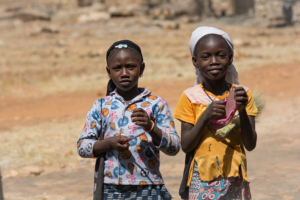5 Poverty-Fighting NGOs in Mali
 Mali is a country located in the Sahel region of West Africa, home to 21 million people. According to the World Bank’s measurements, the Sahel is one of the only regions in the world where poverty is on the rise, and Mali is no different from its neighbors. 44.6% of the population lives below the national poverty line and 19.1% under the international poverty line of $2.15. Factors such as growing regional instability and a continuing insurrection in Mali’s northern province explain this growth in extreme poverty. Nevertheless, in the face of this great challenge, different organizations have multiplied their efforts to stem the tide and fight against the increasing misery. This article presents five such NGOs in Mali.
Mali is a country located in the Sahel region of West Africa, home to 21 million people. According to the World Bank’s measurements, the Sahel is one of the only regions in the world where poverty is on the rise, and Mali is no different from its neighbors. 44.6% of the population lives below the national poverty line and 19.1% under the international poverty line of $2.15. Factors such as growing regional instability and a continuing insurrection in Mali’s northern province explain this growth in extreme poverty. Nevertheless, in the face of this great challenge, different organizations have multiplied their efforts to stem the tide and fight against the increasing misery. This article presents five such NGOs in Mali.
5 NGOs in Mali
- GAIA Vaccine Foundation – Since its foundation in Rhode Island in 2001, the GAIA Vaccine Foundation has fought to reduce the incidence of contagious diseases in Mali through vaccination campaigns for those most in need. The foundation has created four main sectors for its programs: education, prevention, access to care and vaccination. With the support of several U.S.-based organizations, including the U.S. embassy in Mali, it has achieved outstanding results, with more than 1,300 pregnant women receiving HIV treatment in 2020 or vaccinating 750 little girls against HPV. The GAIA Vaccine Foundation is a clear example of an NGO in Mali with international backing working to improve people’s lives and contribute to the international fight against poverty.
- A Child For All – ACFA began its operations in late 2008, founded as a local initiative to fight against child poverty and injustice in Mali. Today, it maintains this goal with the four main pillars of its operations: shelter, nutrition, education and health care for its children. Its operation provides these four services in its installations and through the support of professionals in each field. Among its main achievements lies the creation of a safe house complex in the village of Zorokoro, which now houses 30 children in need between the ages of 3-18.
- Ouelessebougou Alliance – The Ouelessebougou Alliance became the first Utah-based NGO to start operations in Mali in 1986. Its activities focus on its namesake region of Ouelessebougou and has taken a different, more inclusive approach towards its aid programs. They focus on collaboration with the local community to aid them in solving what they identify as their most urgent needs sustainably. Programs such as Preventative Health or Continuing Education have proven successful. The combined results of the programs include the vaccination of more than 14,600 women and children, the training of more than 50 health professionals, the enrollment of more than 2,000 students and 12 partnerships with educational institutions throughout the region. The Ouelessebougou alliance proves that NGOs in Mali can impact the fight against poverty.
- Cordaid – Cordaid is the result of a unification process of several Dutch NGOs in 2000. They expanded their operations to Mali in 2009, opening their headquarters of the West Africa division in the Malian capital of Bamako. Since then, Cordaid has been working in the field to promote local job creation, aid in conflict prevention and help reduce the impact of contagious diseases. Cordaid has achieved this goal with remarkable efficacy, with more than 32,000 farmers provided with training, 5,100 jobs created and 48,000 people increasing their income just in 2020. Cordaid is an established and respected actor in Mali and aids the local population effectively.
- The Alliance for International Medical Action – ALIMA, the Alliance for International Medical Action, opened its doors in 2009 in Niger to reduce child mortality and malnutrition. Nowadays, its operations span 14 countries, including Mali. Operations in Mali started in 2011 and have since achieved commendable results. In 2022, the alliance vaccinated more than 540,000 people against COVID-19, trained 153 health professionals, supplied 40 health centers, treated more than 11,000 cases of infant malnutrition and provided 153,000 medical consultations to those in need. These results illustrate how, even in the most dire of situations, a little aid can impact thousands of lives.
Prospects for the Future
While Mali’s situation might be worsening, the actions of the aforementioned NGOs prove that localized success is possible and that the fight to end poverty is not a lost cause. In the despair of poverty, these NGOs bring hope to those most in need.
– Daniel Pereda
Photo: Flickr
